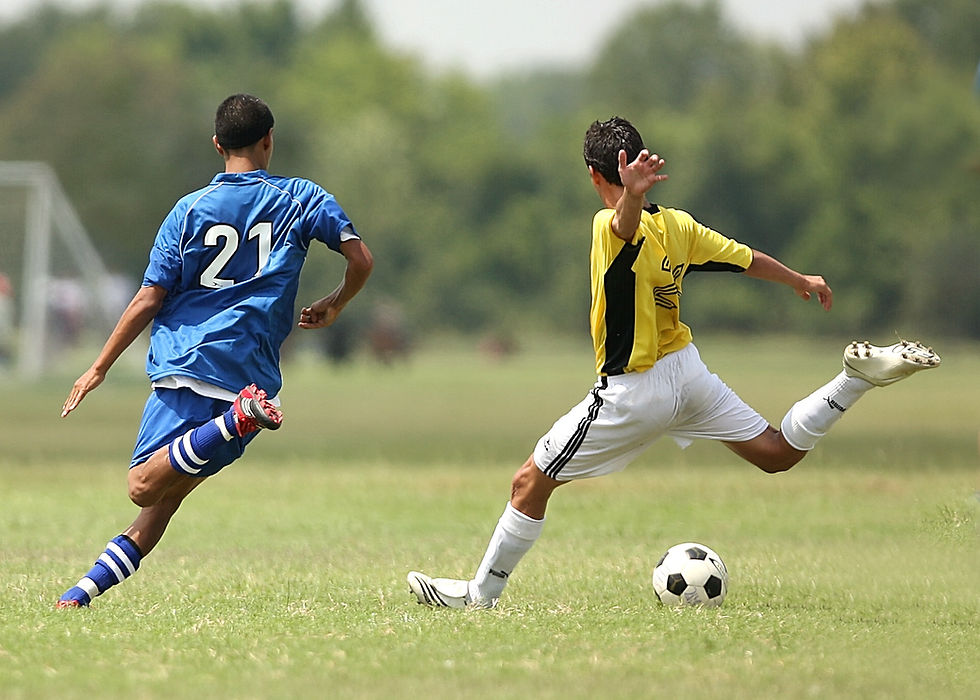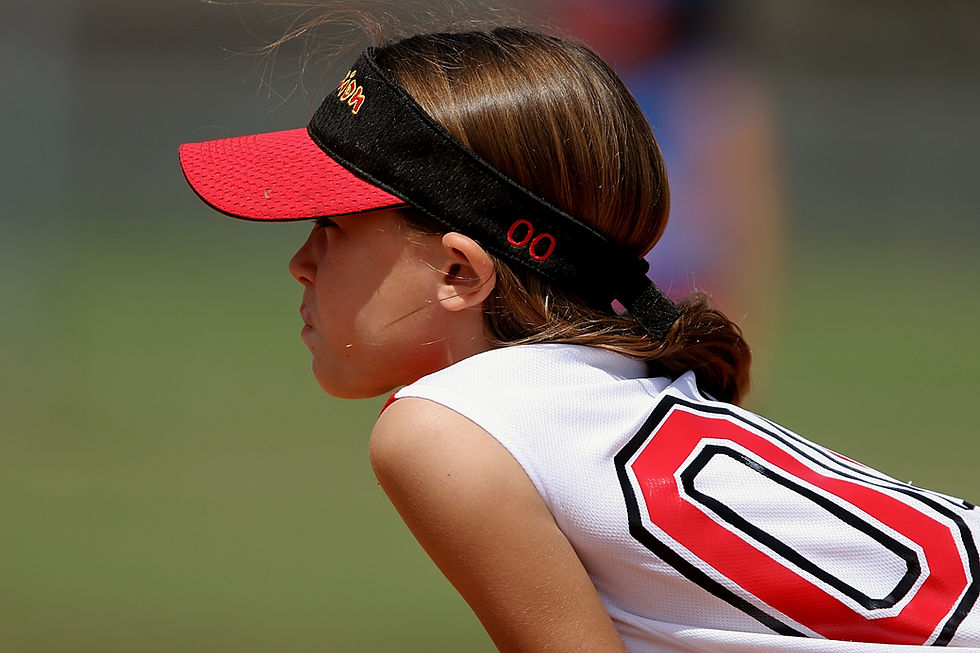Youth Sports Benefits: How to Ensure Your Child Wins the Important Stuff
- Payton Johnson
- Sep 2, 2019
- 5 min read
Updated: Nov 7, 2024

Baseball gloves, dirty cleats, and smelly gym bags; parents know this all too well. It seems like kids hit a certain age and slap on knee pads or a baseball cap and are thrown onto a field to encounter what will be one of the first major social experiences of their lives. While most parents are worried about orange slices and staying on top of dirt stains, a parent who is raising a child with social, emotional, behavioral, or mental health difficulties has their mind on vastly different stressors. These parents are nervous that a coach, parent, or other athletes will ridicule their child or make them feel like they are "different". We at PA Parent and Family Alliance sat down with a mom who has seen how beneficial youth sports can be for her four children and has some advice on how to ensure your children have similar experiences. After all tee ball should be looked back on as a fun time in you and your child's lives, not a negative one.
Is your child being bullied at their extracurricular activities? Many people don't know that if your child has an IEP it extends to extracurricular activities. Check out our Bullying Prevention tip sheet!
This mom shared with us that all 4 of her children, 3 of which have behavioral challenges, are involved in youth sports. Her kids have been in various sports; baseball, football, and soccer all starting about 4 years old. A lot of parents sign their kids up for sports but for this mother it was personal. She personally used sports and physical activity as a way to release her pent up energy and anxiety as well as bond with the people around her. Sports had positively impacted her own mental health and it was her goal that her children's mental health would benefit from them as well.

First things first; kids crave structure. Whether it is through summer camp or their typical school day we can see how much a child benefits from the structure. Research from Ohio University that shows the vast benefits a child can experience from participating in youth sports, as well as statistics on how to encourage children to stay involved.
Statistics from a 2017 study show just how many children are involved in youth sports, how to keep them involved, and how it benefits children. In this graphic (to the left) you can see that other than the obvious physical health benefits, youth sports can also be beneficial to your child's social development, academic achievement, and psychological development.
We want our children with social, emotional, behavioral and mental health challenges to have access to these crucial early lessons and want to learn from that mom of four how she has made sure that her kids are not left out of the fun.
"I made myself present. I am either on the sidelines, in the concession stands, or assistant coaching. By being present I have ensured that I can see how my kids are being treated and change it if it is not appropriate." This mother felt like this was one of the most important, and easiest ways to make sure your child is having a productive and fun experience in youth sports. Being there is one thing but your child will have a much better time if you make sure you're practicing "being a good sports parent".
Other than simply just being there this mother shared that a pre-season discussion with her child's coach can get you both on the same page about how your child will need to be coached for them to feel comfortable and have fun."They just don't want to feel different, the worst thing a coach can do is make them feel different". When asked if it has been an issue with her she simply said;
"They either worked to understand my children, or they didn't coach them."
This mother remembers one of the best coaches that has ever coached her kids. She explained that the coach allowed the child to come early or stay late before or after practice and run through the skills learned that day in a way that made her child feel special, not different. In turn, her child was able to stay with the pace of their teammates and this mother could not have appreciated the coach more. If you are a parent AND a coach that is reading this try and keep this tip in your playbook. There is nothing more important in youth sports than helping the children you are coaching to grow as athletes, but more importantly as people.

This main goal must be kept in mind for all of the parents and coaches involved in a youth sporting event. The mother of four has seen growth in each and every one of her children that have gone through youth sports. She loves the fact that in a sports environment her child can express themselves and release energy without being told they need to settle down and sit still.
Home runs and touchdowns can win games, but a real win for your child is the kind of social developmental benefits they can experience through youth sports. It helps them interact with other children their own age and teaches them very early lessons on how to make friends. This mother has noticed that some of her child's best friends have come from their youth sports days and she loves the sense of family she and her children have experienced. "You can feel like it is a family setting. It is so important for you to have parents who have kids of similar ages to yours for you to bounce ideas off of. It is a huge opportunity for an extra support system for you and your child". We at PA Parent and Family Alliance know just how essential a parent to parent connection is and youth sporting teams can help to offer that.

While the benefits of signing your child up for youth sports are obvious, you need to make sure that you are letting them take the reigns. This mother shared with us just how important it is to let your children explore a number of sports and pick one that makes them feel excited to go to a practice or game. This is corroborated by the Ohio University infographic that says a way to keep kids involved in youth sports is to offer them a wide array of options that they get to try out and chose from.
The main take away is that the emphasis must be put on fun; 9 out of 10 children site "fun" as their main reason for playing sports. It is essential that this be the priority for you and your children. As a parent of a child with a social, emotional, behavioral or mental health challenge a conversation with your child's coach, and then staying present can help ensure the experience remains fun. Don't let the fear of people treating your child different stop you. Speak up and advocate for both you and your child. Let them know that you are there to have fun and if it is necessary for them to educate themselves in order for your child to feel like they are a part of the team than it must be done. Find a sport that fits your child's interests and a sports family that makes you all feel welcome.
Looking for trusted guidance on supporting your child’s mental health? Join our free parent community to receive helpful tips, resources, and support right in your inbox.


